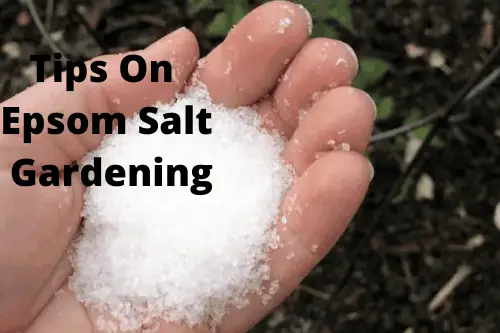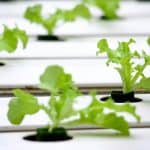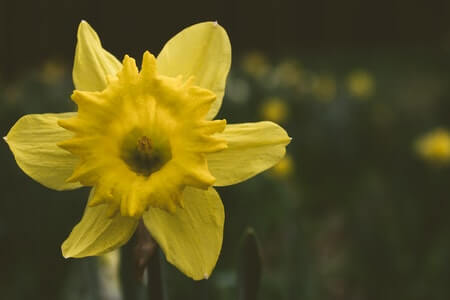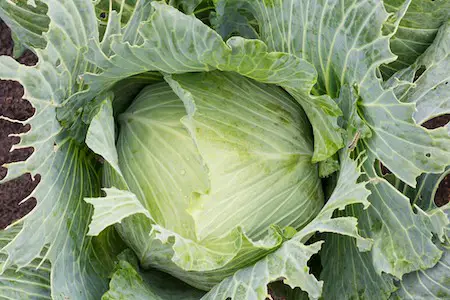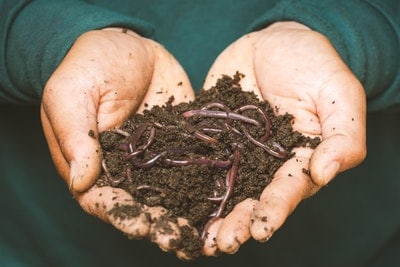For those not familiar with Epsom salt [1] and its inherent qualities, imagine that all-round, super edible item that seems to work for everything and can be used in a variety of ways. Honey? Ginger? You got it right! The delicious flavour and peculiar scent of ginger leave so much to be said about the individual, medicinal properties of each edible.
Now, think of Epsom salt gardening in the same way. While Epsom salt is used mostly as a laxative, it does work wonders in your garden and body. A soak in a bathtub containing Epsom salt will help to cure sore muscles, sprains, insomnia, sunburn, arthritis pain, amongst others.
Epsom salt is a typical homemade treatment. It contains magnesium sulphate; a form of magnesium salt that can be used to treat magnesium deficiency. This means that Epsom salt is unnecessary if your crops do not suffer from a magnesium deficiency. There is a thing such as ‘too much salt’ in your garden soil.
Tips On Epsom Salt Gardening
Ensure Your Soil is Magnesium Deficient
The first, most important tip for Epsom salt gardening is ensuring that your soil is properly tested for magnesium deficiency. Results showing a deficiency in salt levels is your green light to using Epsom salt on your garden. However, while you can still use Epsom salt in your garden, be sure to use it sparingly so as not to shoot up the amount of magnesium in your garden soil to an extreme level.
Use it To Boost Garden Output
Generally, Epsom salt helps to deter pests, help seeds germinate, speed up plant growth, boost plant health, boost output of garden vegetation, provide nutrients and increase the flavour of fruits and vegetables. It can be applied to lawns, rose bushes, tomato vegetation, shrubs such as evergreens, rhododendron and azaleas, house plants and fruit trees also improve with the extra boost from Epsom salt.
Make Use Of Epsom Salt To Rid Your Garden Of Pests
Use Epsom salt as a natural pesticide to combat unfriendly elements and agents in your garden. The use of Epsom salt to cure your garden of pest is the most suitable option if you do not favour artificial pesticides. Want to know another plus? The non-toxicity of Epsom salt makes it safe for children should they come in contact with it.
For weeds, Epsom salt may be mixed with vinegar and sprayed on weeds to naturally eliminate them. If you are using it for feeding your soil, then spray without the vinegar or pour at the base of your plants and leave it to soak into the soil.
It Can Be Used To Remove Tree Stumps
If you’re engaging in Epsom salt gardening, note that Epsom salt can also be used for a variety of other things around the garden such as removal of tree stumps. Drill holes into the tree stump and simply pour Epsom salt into it. The properties of Epsom will see to it that all moisture within the tree stump is absorbed, making removal easy.
You Should Use It To Produce Better Crops
For vegetable gardening, particularly tomato, consistent applications of Epsom salt will supplement the magnesium tomato plant uses, which is a lot. Maintaining the adequate levels of magnesium in your tomato plants will result in stronger, sweeter and tasty tomatoes.
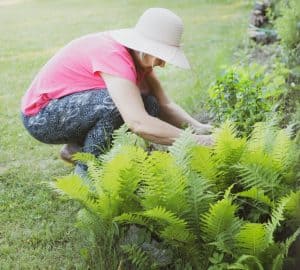
Rewarding right? There’s more. Soaking your roots in half a cup of Epsom salt and a gallon of water will work magic for your rose bushes.
House plants and shrubs require two tablespoons and one tablespoon respectively with water to thrive under your Epsom salt gardening. Your fruit trees will equally need two tablespoons to be applied thrice a year for the best results. Plants in your garden that can be boosted by Epsom salt are ferns, gardenias, azaleas, pansies, petunias, roses and bougainvillaea.
Your fruit will taste better, and your flowers will bloom stronger with Epsom salt gardening.
Your Crops Can Be Protected Against Certain Diseases When Epsom Salt Is Applied
Your fruits and vegetables stand a better chance against leaf curling and yellowing induced by deficiency in magnesium when you garden with Epsom salt.
The ability of Epsom salt to provide much-needed nutrients to cultivated crops enables it to make up for depleted nutrients in plant leaves. One tablespoon of Epsom salt mixed with water and sprayed onto leaves will suffice as a natural remedy for yellowed leaves in your garden.
The same mixture also applies to cure curling leaves. Note that Epsom salt is not the same as bath crystals or Dead Sea salts. Epsom salt is found in natural springs in Epsom, England and is called salt as a result of its properties and chemical structure.
Conclusion
In Epsom salt gardening, you may either harm your garden or improve it by the use of Epsom salt on it. Ensure that you know the recommended amount of Epsom salt to use for each plant and the way to apply Epsom salt on them.
Following these tips to the letter will make your gardening easy and results assuredly improved tremendously.
Glossary
[1] Epsom Salt – Link

